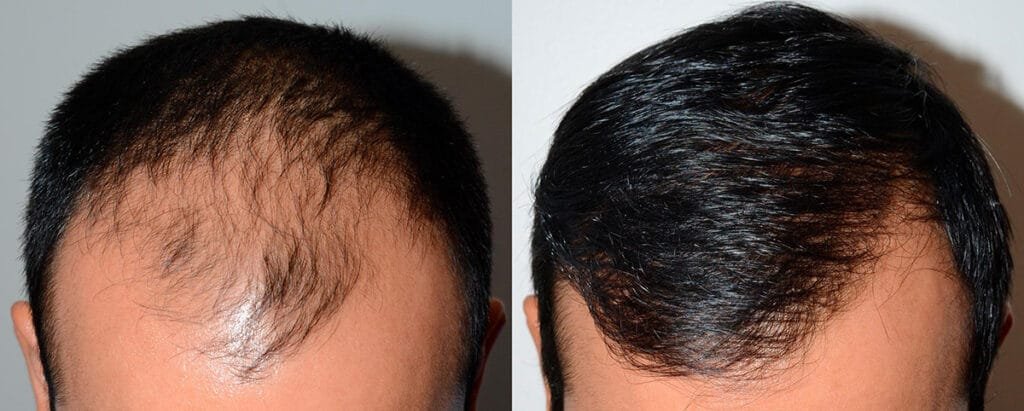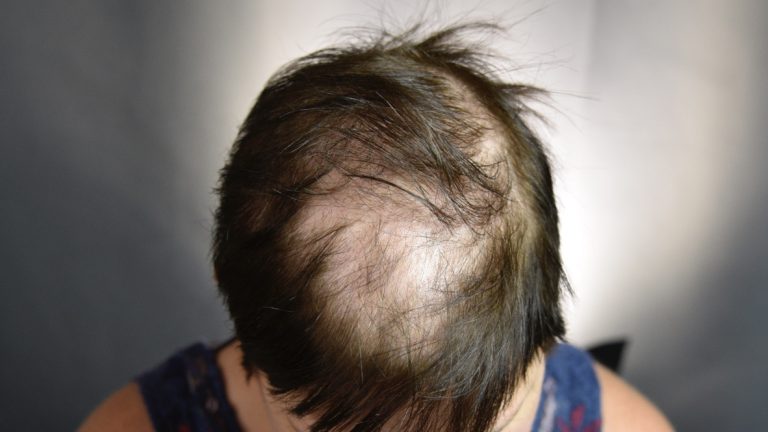Are Hair Transplants Permanent? Get The Clear Answer

Hair loss can profoundly impact confidence and self-image, leading many to seek practical and lasting solutions. One common question arises for those considering hair restoration: “Are hair transplants permanent?” Here at Davis Hair Restoration, led by Dr. Steven Davis, a board-certified plastic surgeon, we believe in providing our patients with the knowledge they need to make an informed choice. This article explores the permanency of hair transplants, differences in techniques, and what to expect regarding recovery.
What is a Hair Transplant?
A hair transplant is a surgical procedure designed to move hair follicles from one part of the scalp (usually the back or sides, known as the donor area) to areas experiencing thinning or balding. Unlike other hair restoration treatments, hair transplants offer a solution generally considered permanent due to the characteristics of the transplanted follicles.
The reason for this permanency lies in the donor’s hair. The hair follicles from the back and sides of the scalp are often genetically resistant to hair loss, meaning they retain their characteristics even when moved to other areas of the scalp. Dr. Davis and his team leverage this property to provide patients with long-lasting, natural-looking results.
Are Hair Transplants Permanent?
The short answer is that hair transplants are designed to be permanent. Once the transplanted hair follicles are established in the recipient area, they grow like in the donor site. Because these follicles are generally resistant to the effects of dihydrotestosterone (DHT) — the hormone primarily responsible for hair thinning and loss — they continue to grow over a lifetime.
However, it’s essential to understand that while the transplanted hair is usually permanent, natural aging processes and other environmental or health factors can influence hair density. Dr. Davis explains that while hair transplants provide a long-term solution, patients may occasionally need additional treatments to maintain overall hair density, particularly if non-transplanted areas continue to thin over time.
Techniques Used in Hair Transplants
There are two primary techniques for performing hair transplants, each offering unique benefits and involving different recovery times:
- Follicular Unit Transplantation (FUT): The “strip method” involves removing a thin strip of scalp from the donor area. Dr. Davis and his team carefully dissected this strip into individual follicular units and implanted it into the recipient area. FUT is often preferred by individuals who need more grafts, as it can provide extensive coverage. However, it does leave a linear scar, which may be visible if the patient chooses a short haircut in the future.
- Recovery Time: Patients undergoing FUT generally need a more extended recovery than other methods. The area where the strip was removed will require stitches and typically takes a couple of weeks to heal. Most patients experience mild discomfort, but this subsides over time, with visible signs of surgery fading within a few weeks.
- Follicular Unit Extraction (FUE): In FUE, individual hair follicles are extracted one by one from the donor site and transplanted directly to the thinning or balding area. Dr. Davis specializes in this technique at Davis Hair Restoration, as it leaves no linear scar and allows patients to achieve a natural look with minimal invasiveness.
- Recovery Time: The recovery time for FUE is generally shorter than FUT, with many patients able to return to daily activities within a few days. Since there’s no need for stitches, scarring is minimal, and discomfort is typically mild. Patients may notice some redness and small scabs in the recipient area, but these usually heal within a week or two.
Understanding the Permanency of Results
When considering “whether hair transplants are permanent,” it’s essential to look at the techniques and the unique characteristics of each patient’s hair. While FUT and FUE are designed to offer lasting results, the transplanted hair is subject to natural changes, such as graying over time. However, the structure and resistance to hair loss generally remain consistent, making hair transplants one of the most effective options for long-term hair restoration.
Factors That Affect the Longevity of Hair Transplants
- Quality of Donor Hair: The success and durability of a hair transplant largely depend on the strength and resilience of the donor hair. Dr. Davis ensures that only the healthiest follicles are selected, maximizing the longevity of the results.
- Skill of the Surgeon: The precision and expertise of the plastic surgeon play a crucial role in the success of the transplant. Dr. Davis brings years of experience and a commitment to patient care, ensuring each transplant is carefully planned and executed.
- Post-Operative Care: After a hair transplant, following post-operative care instructions to support healing and encourage optimal growth is essential. Patients are advised to avoid certain activities and to protect the scalp from sun exposure for a period following the procedure.
What to Expect After a Hair Transplant
After a hair transplant, patients will initially notice a shedding phase, a natural process. This occurs as the transplanted follicles settle into the scalp and prepare for new growth. Patients will begin to see new hair growth within a few months, with results typically visible between six to twelve months post-procedure.
Dr. Davis emphasizes the importance of patience during this time, as each individual’s hair growth cycle varies. Over time, patients can expect a fuller, more natural-looking head of hair that enhances their appearance and confidence.
Making the Decision: Are Hair Transplants Permanent?
For those wondering, “Are hair transplants permanent?” the answer is a resounding yes, with certain conditions. Hair transplants are an excellent choice for individuals seeking a long-term solution to hair loss, mainly when performed by a skilled surgeon like Dr. Davis. However, as with any medical procedure, individual results vary, and factors such as genetics, lifestyle, and aging may influence overall hair density.
Schedule Your Consultation with Davis Hair Restoration Today!
If you’re considering a hair transplant and want lasting results, or if you want to elaborate on Are Hair Transplants Permanent, contact Davis Hair Restoration in Cherry Hill, NJ. Our team, led by Dr. Steven Davis, offers expert guidance and customized treatment plans to help you achieve your desired look.
Schedule a consultation today to discuss your hair restoration goals and take the first step toward a fuller, more confident appearance.






